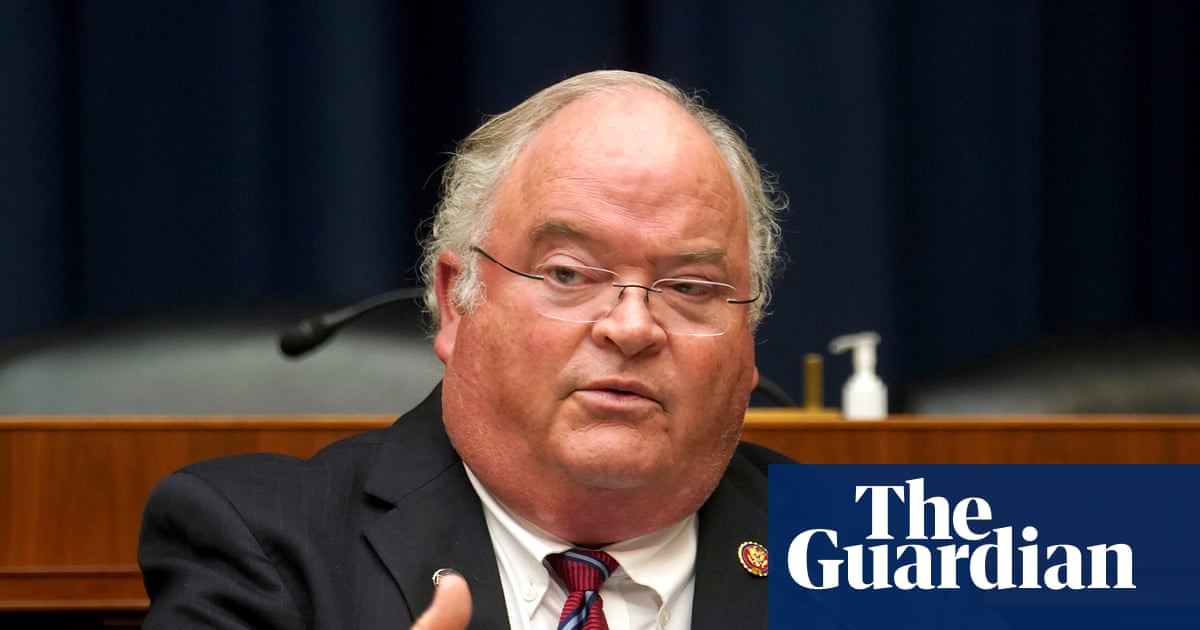Private contractors run many of ICE’s largest detention facilities. Now, with a push to deport more and more immigrants, these companies stand to win big under Trump.
Two issues here:
- Congress must have the power to regulate and/or ban campaign activity by corporations and PACS. This will require a constitutional amendment.
- We need to stop the expansion of detention facilities for immigrants.
For many workers or organizations reliant on the federal government, President Donald Trump’s return to office has meant jobs, funding and entire agencies slashed, as the Department of Government Efficiency (DOGE) claims to have cut $202 billion.
But one industry has seen exponential growth — and expects even more to come: immigration detention.
“Private prison companies have been so giddy since last November, about the prospect of making billions of dollars at the expense of every American,” Stacy Suh, director at Detention Watch Network, told The Independent.
And the companies made sure to help Trump get elected.
America’s two leading detention companies, Geo Group and CoreCivic, were among the Trump campaign’s most notable donors last year, with executives and subsidiaries donating a total of $2.7 million to the president’s campaign and associated political action committees.
CoreCivic even bestowed over $500,000 towards Trump’s inauguration this year, while Geo Group contributed to his 2016 inauguration fund.
Trump’s Big, Beautiful, Bill set aside an unprecedented$45 billion for ICE to boost immigration detention. As the two largest detention powerhouses in the U.S., both Geo Group and CoreCivic stand to win big.
As soon as Trump won the election last November, CoreCivic’s share price saw a huge spike, nearly doubling from $13.63 per share to $22.13 per share in just one week.
GeoGroup’s share price jumped from $15.13 to $25.05 in the same post-election period.
This is likely because the privately-run facilities house 86 percent of the detained immigrant population, according to the Transactional Records Access Clearinghouse (TRAC).
Yet just 6 percent of Americans believe that ICE detention centers should be run privately, an exclusive poll for The Independent can reveal, with the majority saying facilities should be run by federal or state governments, according to Prolific.
Over 60,000 people are currently held in immigration detention across the U.S., according to ICE records seen by The New York Times.
That number has already jumped by 54 percent since Trump’s return, with average detention populations under the Biden administration around 39,000, according to TRAC.
But though the government may determine their future, the 20 largest ICE detention centers are all operated by private companies, according to TRAC’s data in January.
GeoGroup and CoreCivic are the leading operators, both in terms of facilities operated and their capacity. Other private firms, like Lasalle Corrections and Management & Training Corporation (MTC), also have contracts to run ICE facilities.
CoreCivic runs the biggest detention centre in the country — Adams County Correctional Facility in Natchez, Missouri, with over 2,100 detainees on average each day. The new federal facility at Fort Bliss may soon take the cake, however, with a capacity of 5,000 people.
Both CoreCivic and GeoGroup provide both traditional prison incarceration services, and immigration detention services, to federal and state governments.
But with a slowdown in incarceration and greater focus on rehabilitation in recent years, prison contracts have been drying up — and increased immigration detention contracts has become more foundational to their business models.
One of Trump’s first actions in office was also to end the Biden-era ban on private prison providers, allowing companies like GeoGroup and CoreCivic to once again contract with the Department of Justice.
When asked for comment about its reliance on punitive policies by the new administration to build its business, CoreCivic noted that it does not enforce immigration laws, or arrest anyone, or have any say over an individual’s deportation — but it acknowledged that Trump’s policies does provide it with growth opportunities.
“As the current administration is exploring all options available to them to address the increasing demand for detention services and capacity, we expect that those options will include the high-quality solutions CoreCivic provides,” Ryan Gustin, director of Public Affairs at CoreCivic, told The Independent.
Meanwhile, a spokesperson for GeoGroup told The Independent that “simply put, our facilities are never overcrowded.”
But Freedom of Information Act requests by TRAC last month revealed that several facilities run by GeoGroup were significantly overcapacity on at least one day this year.
This includes GeoGroup’s Pine Prairie processing centre in Louisiana, which has a contractual maximum of 500 people but held 1,311 detainees at some point in 2025.
Immigration operations make up over a third of revenue for both Geo Group and Core Civic, latest financial reports show, making ICE their largest governmental partner.
“We are proud of the role our company has played for 40 years to support [ICE’s] law enforcement mission, over seven different Presidential Administrations,” a GEO Group spokesperson told The Independent.
Geo Group has been awarded nearly $8 billion in federal contracts over successive governments, according to the federal database, in addition to state contracts.
Over half of this ($4.4 billion) was awarded by ICE for immigration detention services.
Meanwhile CoreCivic has been awarded over $8.3 billion in federal contracts over time, with a quarter ($2 billion) of those being ICE contracts to run detention facilities.
“ICE’s budget now is larger than many militaries around the world, while our hospitals and schools remain underfunded, and people are losing their access to health care and food benefits,” said Suh.
The Independent contacted ICE for comment for this article but did not get a response.
Federal contracts from ICE have been steadily increasing since Trump’s first term (with for a brief time during the peak of the pandemic), according to the federal spending database, rising from $137.5 million awarded in 2016 to $463.4 million in 2025 so far.
ICE contracts awarded since January alone include $353.5 million to GeoGroup, $148 million to CoreCivic, and $313 million to CSI Aviation — ICE’s deportation flight contractor.
“There is more and more incentivization to cage people in immigration detention. The more people that they detain, the more their business grows,” Suh said. “Financial Incentives are really the bedrock of incarceration.”
And now, documents seen by The Washington Post reveal that ICE is planning to more than double detention capacity, from around 50,000 to more than 107,000 by January 2026.
These plans include opening or expanding 125 facilities before the end of the year – with over $1 billion in contracts each year between CoreCivic and GeoGroup, according to the Post’s analysis of ICE documents.
Already, both detention giants have seen a flood of new or amendedcontracts and have opened up new facilities to expand their capacity.
What’s more, ICE has issued nine of these contracts without allowing competitive bids, citing a national emergency at the Mexico border — meaning that CoreCivic secured the deal to reopen its contentiousLeavenworth facility without competition, according to PBS.
“We stay in regular contact with ICE and all our government partners to understand their changing needs, and we work within their established procurement processes. It is our policy to respect these processes,” Gustin told The Independent of CoreCivic’s contracts.
Since January alone, several facilities have been opened up to hold more immigrants in detention as ICE ramps up its raids.
In the Michigan town of Baldwin, former prison North Lake Correctional Facility has now reopened as an immigration center operated by Geo Group, to the tune of $70 million in annual revenue. The 1,800-bed facility opened in June despite facing significant pushback from residents and local protests.
And just last week, a tense dispute broke out at a local board meeting in Mason, Tennessee, over the reopening of a CoreCivic facility as an immigration detention center. Residents crowded the meeting and chanted outside in protest of the contract, which was ultimately approved, according to reports in the Tennessee Lookout.
“If ICE expansion plans are fully realized, that’s a massive shift in resources. It’s also a massive transformation in the very fabric of American society and how it operates,” Suh told The Independent.
“Communities across the country are rightly outraged about detention expansion happening on their doorstep. People are saying, ‘No, we don’t want detention in our community. We don’t want our neighbors to be torn apart away from their loved ones’.”











